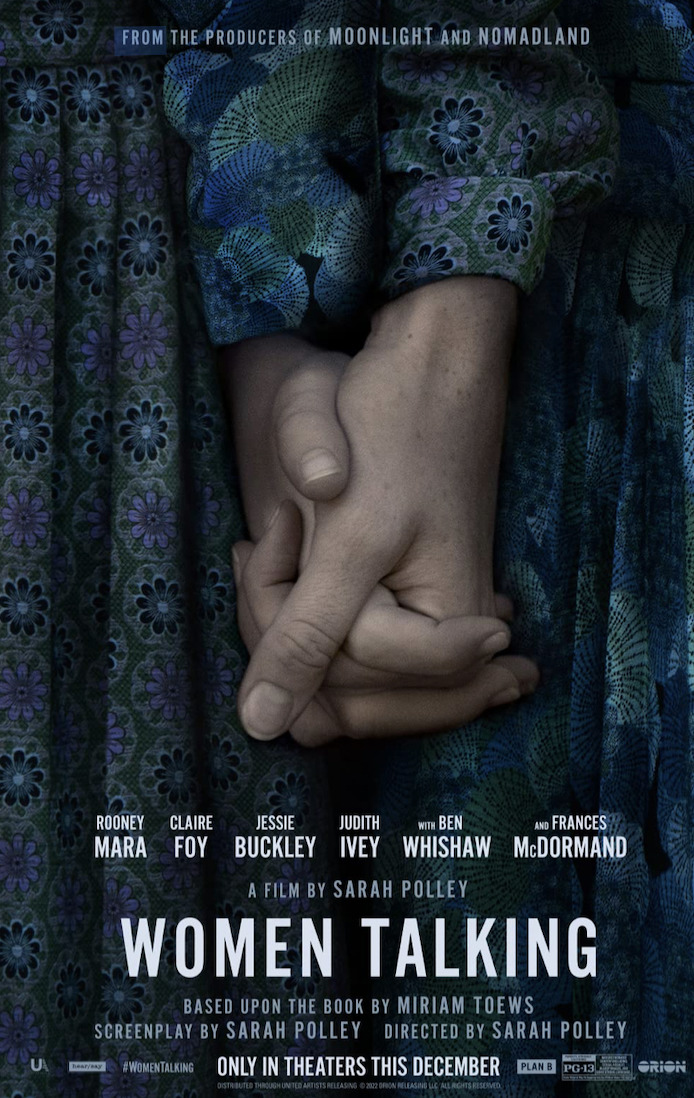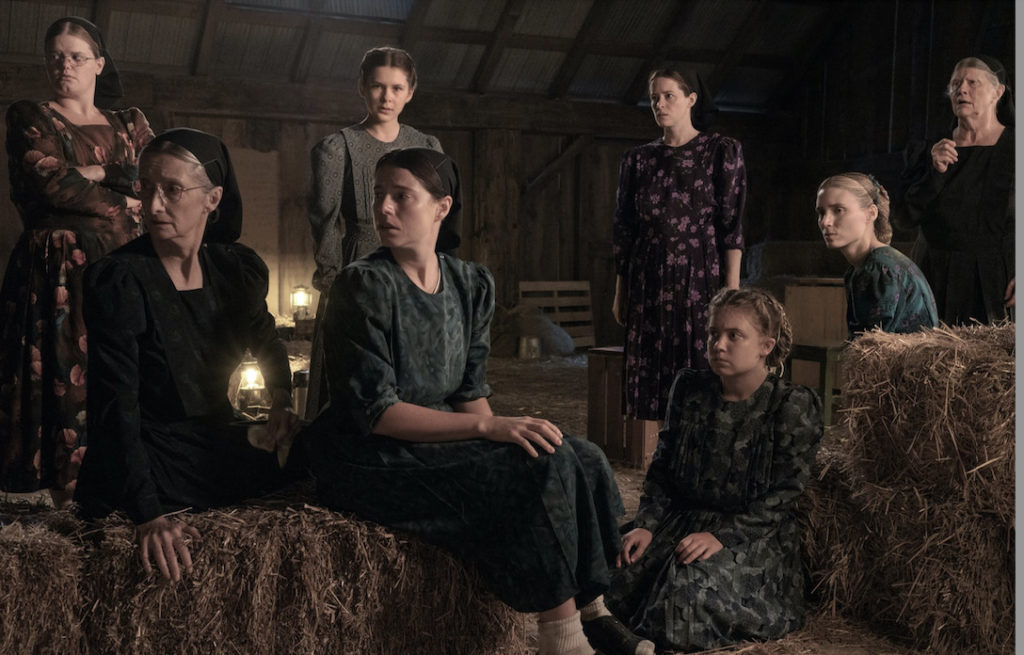
At night they are drugged and raped. For years women wake up with pain and sheets soaked in blood, but no memory of what happened. Ghosts and demons did it, say the men in the ultraconservative remote religious colony. But these women know better. And they talk. Now it’s time to decide. Stay and fight, forgive or leave towards the unknown.
The story of “Women Talking”, the new film by Sarah Polley and a Toronto International Film Festival sensation, is a concentrated piece of filmmaking that uses the strength of words to hit you, focusing on the consequences rather than the brutal crimes the husbands, brothers and sons are responsible for.
The whole film basically takes place in a hayloft a decade ago, perhaps. The exact time is unknown, suggesting it could happen at any time. Eight women from three families of all ages have gathered during the course of two days to discuss faith, healing, justice and the fate of the Mennonite colony. While the men are away, they have little time to decide what to do.
The performances make the big screen tremble. Sharply and intelligently, Jesse Buckley, Claire Foy, Judith Ivey and Rooney Mara, and others, use philosophical and intriguing monologues in their quest to change – Oscar nominations are to be expected. Frances McDormand has little screen time– she is also producer while Brad Pitt and Plan B once again stands behind an important project (as he did with “12 Years of Slave” and “Moonlight”).
It doesn’t come as a surprise that Sarah Polley brings out the best in her actors. The Canadian director, who played in Etom Egoyan’s “The Sweet Hereafter”, started as a child actor and has spent her whole life on film sets. She debuted as a feature director with “Away From Her” with Julie Christie, followed by “Take This Waltz” with Michelle Williams and the acclaimed documentary “Stories We Tell”. With her fourth feature “Woman Talking”, her first in a decade, Polley could easily have made a theater play from the novel it’s adapted from. The Canadian writer Miriam Toews’s bestseller unfolds as a series of dialogues and is loosely based on real-life events that occurred in a Mennonite community in Bolivia in the 2000’s (Toews was born in a Canadian Mennonite community) when seven men drugged and raped 130 women, and later jailed.

Polley and her long time collaborator, the cinematographer Luc Montpellier, use movements, framing and angles of these dialogue-heavy scenes to elevate the gravity of the subtext. But also lyrical shots outside the barn to give a sense of wonder and let the audience breath, accompanied by music from composer Hildur Guðnadóttir (“Joker”, “Chernobyl”). The lack of horrific scenes and the less-is-more approach creates images in our minds of the incidents. After all, this is a film about stories that are told and shared stories. Already from the start a voice-over announces “this story begins before you were born”.
Despite the visual aspects “Women Talking” occasionally has a theatrical feel which creates a distance to the characters, partly because of the choice to saturate the film in a grayed-out color, in a muted palette.Nevertheless the significance of diving into this female space in an oppressive patriarchal territory is urgent and engaging, and ultimately gives a sense of hope despite the heavy subject matter. We can, somehow, rest assured that these women will take control of the situation, whatever the decision may be. The men are absent, except for the kind-hearted schoolteacher August (played by Ben Whishaw), who witnesses and records their conversations, but also serves as a sounding board. In the book August was the narrator while a nameless girl takes that role in the film.
Trauma, rage, and willpower are all themes when Sarah Polley explores the balances between dark and light letting the women really talk. She trusts the words. She trusts her audience. She trusts a better tomorrow.
Grade : B+

